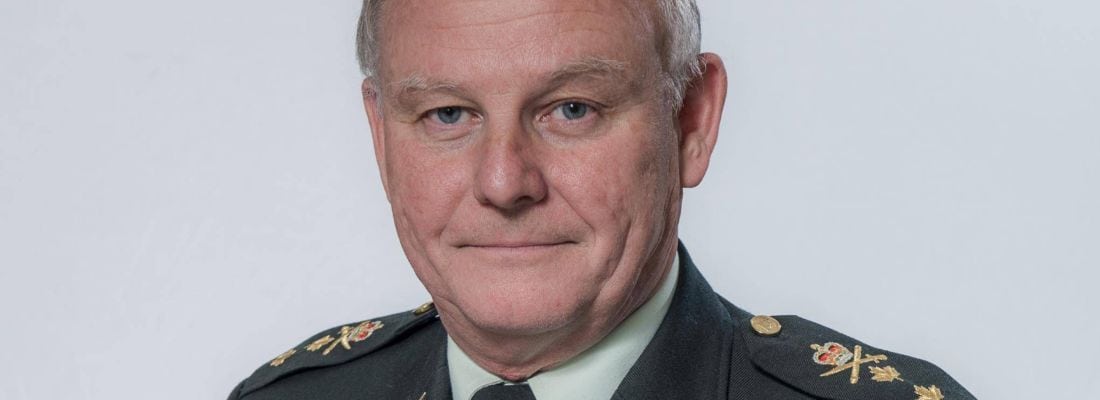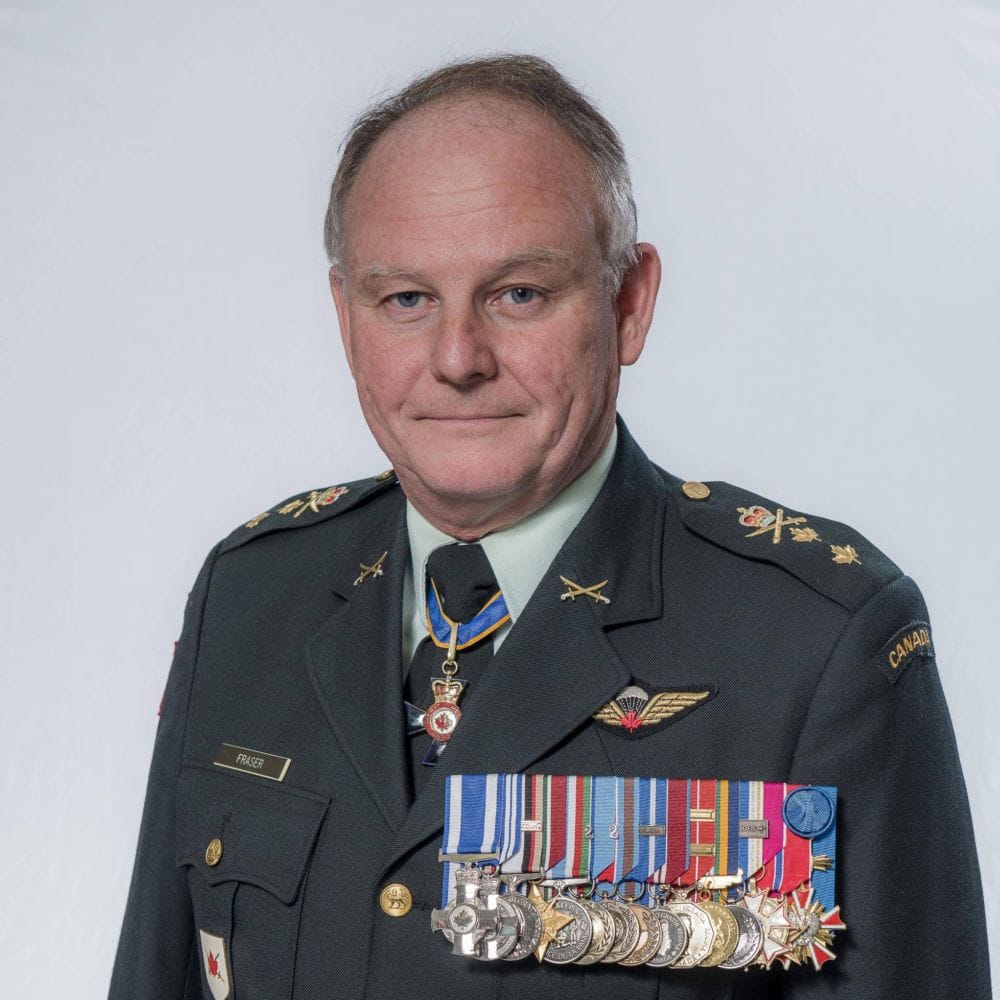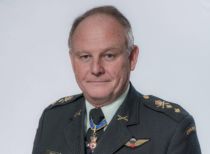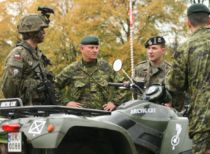Keynote Speeches
From the Canadian in charge of the joint military command in Kandahar Province in Afghanistan, this is the real on-the-ground story of one of NATO’s bloodiest, most decisive and misunderstood operations: The battle of Panjwayi, the defining moment of “Operation Medusa.”
Like the troops under his command, he was in no way ready for what happened on Friday, September 1st of that year. Fraser had been woken the night before by his intelligence officers who informed him that the Taliban were amassing on all fronts for an all-out battle. The NATO Alliance was about to engage the enemy in the greatest and bloodiest battle of their 70-year history. They were grossly outnumbered and yet, in international military circles, the Battle of Panjwayi was quickly hailed as the defining moment of Operation Medusa. Canadians were credited with nothing less than saving Afghanistan from falling under Taliban rule. Our military’s strategy and tactics were soon studied in warfare colleges in the U.S., and practiced by NATO troops in exercises around the world. There is no one architect of Operation Medusa, but if anyone really had to point to the one person who could tell this incredible story, it is the Canadian General David Fraser in charge of the joint military command.
The military’s fundamental philosophy is about being part of a team. A team is strong when everyone works together – a collective that can accomplish more with co-ordination. Whether bringing relief to people in eastern Canada without power during an ice storm or nation-building in Afghanistan, teamwork is key. The private sector operates under similar constructs. Operational excellence is effectively achieved by individuals working within a team construct in order to maximize growth. In the military, you rely on your teammates to survive, and the consequence for failure can be catastrophic. In business, a lack of teamwork has similar negative effects, putting the organization and livelihoods of the team players at risk. In this presentation, Fraser shares his experience in successful operations combat and otherwise to show how effective teamwork is powered by trust and confidence.
From the moment you join the military, you are taught to think ahead: plan your day, plan your training, plan your mission, plan for contingencies, plan for what’s next, plan for “what if” and so on. While many organizations plan, they often lack a contingency outlook or sense of urgency for what may go wrong. Knowing what to do when disruption hits will help reduce both the immediate and ongoing impact.
In this presentation, Fraser explains why an organization of any size can benefit from adopting a similar strategy of anticipating the unexpected. He shares his experience operating under high-pressure situations where immediate priorities of minute-by-minute combat had to be wisely managed, event as decisions were needed for things happening weeks in the future.
Leadership – From The Battlefield To The Boardroom
In Afghanistan, during some of the worst fighting NATO has ever seen, Fraser’s team looked to him for answers and accounts of how bad things were. Whether he had the answer or not, he needed to lead by example and keep the team focused and together. It’s not any different in the boardroom when the economy is on the rocks or your share price is tanking. A team will look to the chairman or CEO for guidance on how to get through the situation.
In this presentation, Fraser discusses how attracting young people with potential is key to effective leadership – find them, nurture them and allow them to gain experience and make mistakes. Allowing employees to grow without an overwhelming fear of failure is critical. As they grow, their experience will improve outcomes, even as the tolerance for mistakes is reduced. This is the “art” of leadership and leadership development.
Good leaders stretch themselves and acknowledge that they will not always be right. They allow for mistakes because this is a natural form of learning. Fraser shares insights from the military’s codified system of leadership training – something that the private sector could benefit from. He discusses the benefits of investing in the constant development and long-term growth of employees. Fraser will help prepare organizations to better react to changing technology, market conditions and demands from customers.
In Afghanistan, during some of the worst fighting NATO has ever seen, Fraser’s team looked to him for answers and accounts of how bad things were. Whether he had the answer or not, he needed to lead by example and keep the team focused and together. It’s not any different in the boardroom when the economy is on the rocks or your share price is tanking. A team will look to the chairman or CEO for guidance on how to get through the situation.
In this presentation, Fraser discusses how attracting young people with potential is key to effective leadership – find them, nurture them and allow them to gain experience and make mistakes. Allowing employees to grow without an overwhelming fear of failure is critical. As they grow, their experience will improve outcomes, even as the tolerance for mistakes is reduced. This is the “art” of leadership and leadership development.
Good leaders stretch themselves and acknowledge that they will not always be right. They allow for mistakes because this is a natural form of learning. Fraser shares insights from the military’s codified system of leadership training – something that the private sector could benefit from. He discusses the benefits of investing in the constant development and long-term growth of employees. Fraser will help prepare organizations to better react to changing technology, market conditions and demands from customers.









Similar Speakers 123